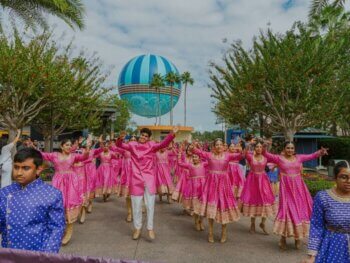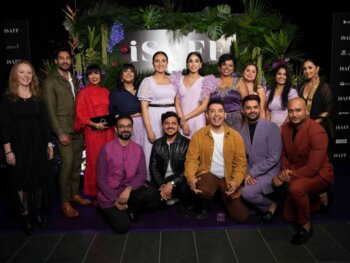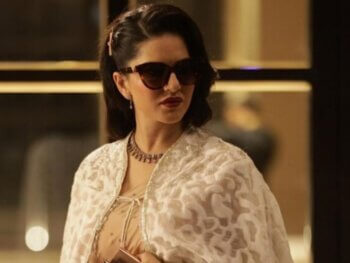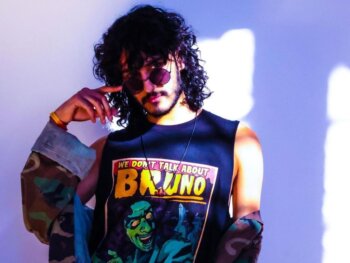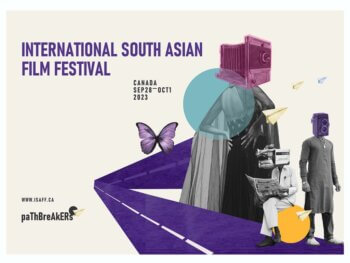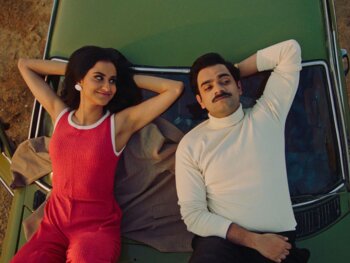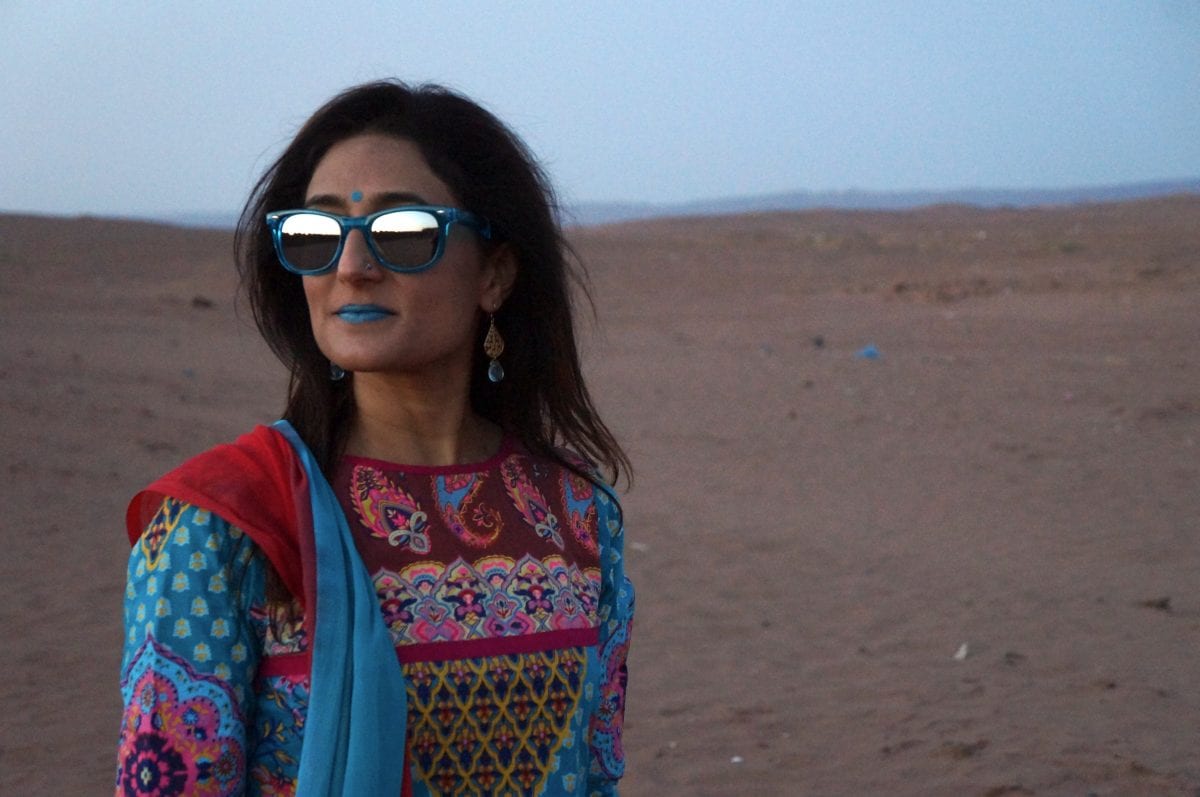
This Is How You Fight Intolerance: JUNO Winner Kiran Ahluwalia Uses Music To Battle The Hate
Entertainment Apr 20, 2018
Canadian singer-songwriter and JUNO Winner Kiran Ahluwalia uses music to battle the hate with LOVEfest her unique new festival geared to exploring serious spiritual world music.
Currently touring across North America, LOVEfest offers a rarely seen mix of secular and spiritual performers from the Muslim and Sikh traditions. Under the mantra “Welcome the Stranger,” it’s a concert that celebrates “love and diversity through music and dance,” conceived as an antidote to the rise in hate crime against both communities in the years since 9/11. The talent includes Algerian singer-songwriter Souad Massi, Sikh spiritual group the Bhai Kabul Singh trio, an Egyptian artist named Yasser Darwish who dazzles with his Tanoura Whirling Dervish dance, and the eclectic, JUNO-winning world music of Kiran Ahluwalia, who recently released her new album, 7 Billion; Ahluwalia also happens to be the architect of LOVEfest, and ahead of the tour’s stop at Toronto’s Harbourfront Centre on Saturday, April 14, we got the chance to chat with her about LOVEfest and her career to date.
Matthew Currie: Tell me about the genesis of LOVEFest.
Kiran Ahluwalia: Well, it all started with a song. I was hearing a lot of news about hate crimes on Muslims and Sikhs. And of course, it was depressing and irking. But on top of that, even within a certain religion or a certain culture, people were arguing about what the best way is to live your life — the best way to dress, the best way to pray.
I thought, you know, there are seven billion people on earth right now and there are seven billion different ways of doing things. So I wrote this song, “Saat”— which means “seven” [which appears on her new album]. And after I wrote the song, I still felt helpless about bringing about any kind of change. So I had this initiative to do something bigger, and that’s how I thought about LOVEFest, to bring in two groups from the Islamic legion — one doing traditional music, one doing modern — and two from the Sikh community, one doing spiritual, and myself, a person doing modern music. I wanted this to be a musical response to hate crime. I wanted LOVEFest to open doors in these communities and encourage a positive curiosity about them.

MC: Were all of the artists immediately open to the idea of bringing the secular and the spiritual together in this way?
KA: Well, the Sikh spiritual music is only ever heard inside of a Sikh temple. It was very, very weird for me to even ask this, and the groups that I approached didn’t really understand what I was talking about. So I really relied on a group that I had a long relationship with, I’ve known them for 30 years; they performed the ceremony at my wedding. And it’s really with trust that they’re coming on board with this, because they’ve never done anything like this, their colleagues have never done anything like this — perform at a ticketed concert for people who aren’t Sikh in a place that’s not a Sikh temple.
MC: What kind of experience can people expect?
KA: They’re in for a festival that celebrate love and diversity. For one ticket, they’re going to see four different groups. There’s a lot of variety, and it’s going to be fun.

MC: How important is it to you to promote diversity in the music industry?
KA: Well, to me it’s very important because I’m not white and I’m not doing English music, so I’m on the outskirts. Unfortunately, diversity is not as important for the mainstream music industry as it should be. Over in Europe, for example . . . [I’m on] my seventh CD, and I’ve had six CDs before this consistently in the top-three on the world music charts. That kind of infrastructure exists there, but in North America, there is no world music magazine, there is no world music charts, so finding diversity in the mainstream is very much a challenge.
MC: How would you describe your style of music? It seems like you’re always incorporating new sounds.
KA: I’ve got two cultures — the Indian and very much the Canadian — and I wanted that to be present in my music. But beyond that, I am a citizen of the world. I have global influences. I incorporate whatever it is aesthetically that I like into my music. There’s a rhythm & blues feel, there’s a little bit of a rock feel, and of course African desert blues remains one of my main influences.

MC: Looking back to when you first started, I read that you were originally on the road to a career in finance. Can you talk about the decision to pivot to music?
KA: It wasn’t so much a decision to pursue music; it was a decision to leave finance. The decision was to really stop doing what I don’t like. And then the road painfully and slowly opened up [laughs].
MC: It’s not an easy decision to leave the security of a job like that, even if you hate it.
KA: Absolutely. You lose a lot of sleep. And other people are like, “I don’t know if this is the best idea” . . . If you’re not going to walk on the path that everyone else is walking, it’s hard to find the support for it in your own heart. But it came to a point for me where I was working on the trading floor at the bank and it was summertime, I came down for my lunch in the concrete jungle that Bay Street is, and I just wanted to walk home. I did not want to go back up to the 40th floor. I think that was the deciding factor that, “I need to get out of this.”

MC: What’s been the highlight of your career up to this point?
Getting to know, geographically, all of Canada. Going to the Northwest Territories, going to the Yukon, going to Prince Edward Island, going to a lot of the small little islands off the coast of B.C. Like, performing on Gabriola Island, which has one road, that has almost no streetlights. All of these nooks and crannies of Canada, and all of the major cities as well . . . all of that stuff, you get for free when you’re touring.
MC: Do you recall a time when you were on-stage and you feel like you really opened someone’s eyes to something new?
Yeah, many times. I remember once I was in a very, very small town in British Columbia. I can’t remember the name of it now, but there were a lot of coal miners there . . . I felt like, “What am I gonna do? Are they going to like me?” But as it turns out, [after the show] when I usually do the CD signings, there was this big guy and he had a big belly and he was kind of scruffy-looking and he wanted a CD. And I thought, “OK, wow. I didn’t know that my music could connect to him as well.” Because if I saw him on the street and he said, “I’m a coal miner,” and here I am a musician, I write about my deep thoughts, my self-sabotage — I would have thought that I can’t connect with him. I just remember being pleasantly surprised by that and by my own stereotyping as well, to think that through music I wouldn’t be able to communicate with someone like him.
A full list of LOVEfest tour dates is available here.
Main Image Photo Credit: Fernando Elizalde
Matthew Currie
Author
A long-standing entertainment journalist, Currie is a graduate of the Professional Writing program at Toronto’s York University. He has spent the past number of years working as a freelancer for ANOKHI and for diverse publications such as Sharp, TV Week, CAA’s Westworld and BC Business. Currie ...



































































































